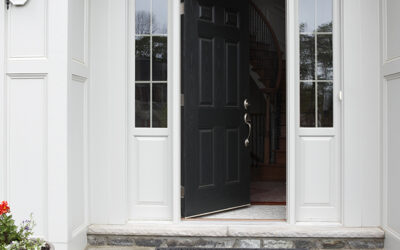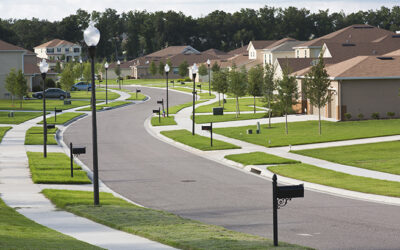There’s More to a Bubble Than Rising Home Prices

What truly causes a housing bubble and the inevitable crash? For the best explanation, let’s go to a person who correctly called the last housing bubble – a year before it happened.
“A bubble requires both overvaluation based on fundamentals and speculation. It is natural to focus on an asset’s fundamental value, but the real key for detecting a bubble is speculation…Speculation tends to chase appreciating assets, and then speculation begets more speculation, until finally, for some reason that will become obvious to all in hindsight, the ‘bubble’ bursts.
I have taken to calling the housing market a ‘bubble’.”
– Bill McBride of Calculated Risk calling the bubble back in April 2005
Where do we stand today regarding speculation?
There are two measurements that are used to determine the speculation in a housing market:
1. The number of homes purchased by an investor and
2. The number of homes being flipped (resold within a twelve-month period)
As compared to 2005, investor purchases are down dramatically (from 23% to 13%) and so is flipping (from 8.2% to 5.7%). McBride explains:
“There is currently some flipping activity, but this is more the normal type of flipping (buy, improve and then sell). Back in 2005, people were just buying homes and letting them sit vacant – and then selling without significant improvements. Classic speculation.”
What are the experts saying about speculation in today’s market?
DSNews recently ran an article which asked two economists to compare the speculation in today’s market to that in 2005-2007. Here is what they said:
Dr. Eddie Seiler, Chief Housing Economist at Summit Consulting:
“The speculative ‘flipping mania’ of 2006 is absent from most metro areas.”
Tian Liu, Chief Economist of Genworth Mortgage Insurance:
“The nature of housing demand is different as well, with more potential homeowners and far fewer speculators in the housing market compared to the 2005-2007 period.”
And what does McBride, who called the last housing bubble, think about today’s real estate market?
Sixty days ago, he explained:
“In 2005, people were just buying homes and letting them sit vacant – and then selling without significant improvements. Classic speculation. And even more dangerous during the bubble was the excessive use of leverage (all those poor-quality loans). Currently lending standards are decent, and loan quality is excellent…
I wouldn’t call house prices a bubble – and I don’t expect house prices to decline nationally like during the bust.”
Bottom Line
Speculation is a major element of the housing bubble formula. Right now, there are not elevated percentages of investors and house flippers. Therefore, there is not an elevated rate of speculation.
To view original article, please visit Keeping Current Matters.
Don’t Tackle Selling Your Home on Your Own – an Agent Can Help
A real estate professional can save you TIME and MONEY by managing every step of the process for you!
Early October is the Sweet Spot for Buyers
While home prices are still appreciating overall, you may see some homes with price adjustments from eager sellers this October.
If You’re a Buyer, Is Offering Asking Price Enough?
If you’ve found your dream home, you need to be realistic about today’s housing market and how that impacts the offer you’ll make.
Two Reasons Why Waiting a Year To Buy Could Cost You
If you are hoping that waiting a year might mean better market conditions to purchase a home, you may want to think again.
Is a 20% Down Payment Really Necessary To Purchase a Home?
If you’re a prospective homebuyer, it’s important to know you don’t have to put the full 20% down
Is It Time To Move on to a New Home?
As the past year has shown, our needs can change rapidly. That means the longer you’ve been in your home, the more likely it is your needs have evolved.
Is the Number of Homes for Sale Finally Growing?
Signs of relief are finally appearing for frustrated buyers. If you’re thinking of selling, now may be a good time to do so!
5 Tips for Making Your Best Offer
In today’s sellers’ market, standing out as a buyer is critical. Multi-offer scenarios and bidding wars are the norm due to the low supply of houses for sale and high buyer demand.
Why It’s Still Safe To Sell Your Home
Real estate professionals use new technology, tools, cleaning procedures, and the latest guidance to meet your changing needs and to keep you safe.
Understand Your Options To Avoid Foreclosure
There are alternatives available to help you avoid having to go through the foreclosure process and a real estate professional can help you.









